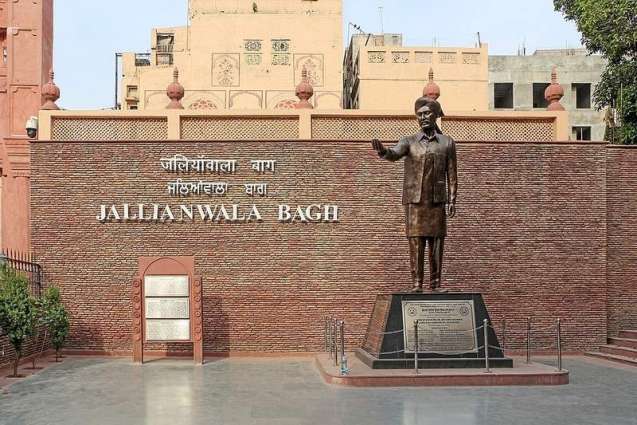Stemming from a deeply personal experience, ‘Khooni Vaisakhi’, is spot on not only with its historical references, but also the lessons of comradery and forgiveness, moving beyond hate through the sharing of literary space
ABU DHABI, (Pakistan Point News - 24th Apr, 2019) Stemming from a deeply personal experience, ‘Khooni Vaisakhi’, is spot on not only with its historical references, but also the lessons of comradery and forgiveness, moving beyond hate through the sharing of literary space.
‘Khooni Vaisakhi’ may have never seen the light of day since its ban in 1920, says Navdeep Suri, the grandson of Nanak Singh, the ‘Father of the Punjabi Novel’. It was sheer family perseverance and luck that played a role in getting access to a copy some 60 years after its ban, the Ambassador of India to the UAE explained to the Emirates news Agency, WAM.
The poem’s title, ‘Khooni Vaisakhi’ has a poignant message, he added. Vaisakhi refers to a historical and religious festival in Sikhism. It is usually celebrated on 13th or 14th April every year. While ‘Khooni’ means ‘bloody’ and is about the 1919 Jallianwala Bagh Massacre that took place under British rule.
At the time of the massacre, Nanak Singh was only 22 years old and was the only person that survived among his group of friends attending the unarmed protest against the Rowlatt Act. Singh proceeded to write the long-form poem narrating the political events running up to the massacre and the immediate aftermath.
Despite the trauma, the poem highlights the spirit of unity at the time, and how India was forming its sense nationalism. "Across India echoed a clarion call ", "Our cries, our pleas, our calls for compassion ", and "Hindus and Muslims they gathered together/To rejoice at a festival, O my friends" are some examples of the messages of togetherness, tolerance, and compassion that exist within the poem.
When asked to comment on the lessons behind the historical artefact that ‘Khooni Vaisakhi’ is, Ambassador Suri said, "The reason that the poem has such a resonance is that even 100 years later the message is still relevant, and speaks at length about the amity between the Hindu, Muslim and Sikh communities in the city of Amritsar, at the time."
Nanak Singh writes: "As the clock struck five on thirteenth April/They all gather in the Bagh, my friends/Seeking justice fair and honour, they stand/ Sikhs, Hindus, Muslims together, my friends."
Suri notes, "We need to remember that these things cannot ever be taken for granted," adding that some 30 years later the partition of India occurred based on religious grounds.
It is astonishing, he adds, "especially because you had a poet in 1919 saying that [Hindus and Muslims] were marching together, shoulder to shoulder, against British rule."
With regional instability, and global insecurity as a result of terrorism and extremism, Ambassador Suri reflects on the need to continue efforts towards ensuring that violence does not consume us and that we move forward recognising the need to be mindful.
"Here in the UAE," Suri highlights, "there is a recognition, especially as we celebrate the Year of Tolerance, that we need to actively promote the idea of tolerance."
"We mustn’t take it for granted, and assume that it’ll happen on its own," he stressed.
Suri went on to say that we must be mindful that, just as we saw in India and Palestine, there are enough forces that would like to operate on the basis of ‘divide and conquer’.
"The onus is on us to overcome this idea," he affirmed, adding that what the UAE is doing to promote peaceful coexistence is "truly exemplary".
"The UAE," Suri continued, "is a classic case of having clarity of thought and purpose and is leading by example." An example of this is the Human Fraternity document, the Ambassador explained. He said that the Abu Dhabi Declaration was a "very explicit way of demonstrating a commitment to interfaith harmony and to set aside centuries of distrust."
From the humanist perspective, it is through writing and reading and engaging with the unfamiliar that makes us, as human beings, come together and grow together. Nanak Singh was not only able to capture, in true and honest form, the turning point in India’s independence journey, but also the message of brotherhood and the power of togetherness.




